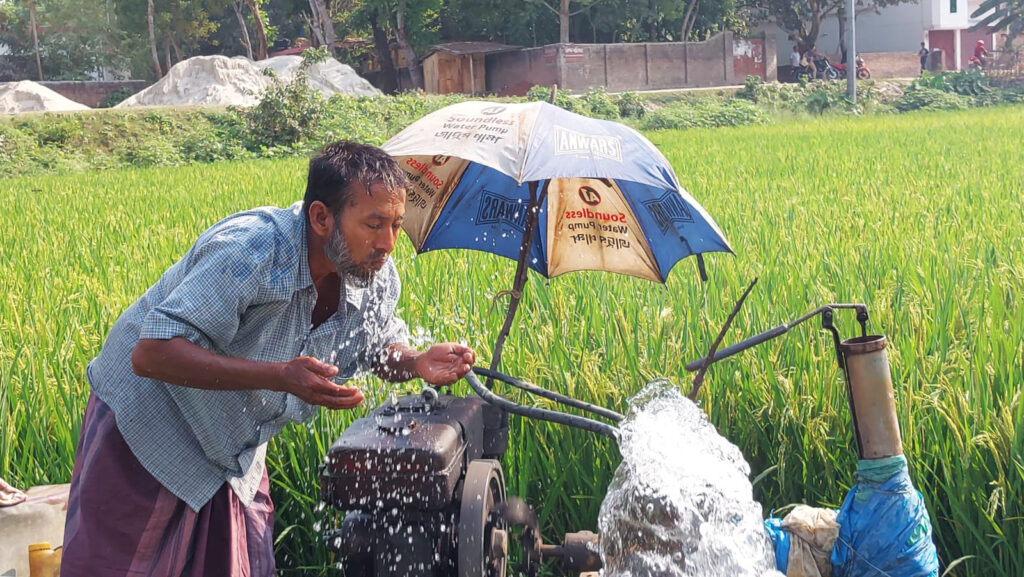
The Scorching Heat Economic Impact
A new World Bank report warns that rising temperatures in Bangladesh have triggered a surge in heat-related illnesses, costing the country 250 million workdays in 2024 and an estimated $1.33–1.78 billion in economic losses—equivalent to about 0.3 to 0.4 percent of its GDP that year.
The report highlights that when temperatures rise above 37°C, productivity among working-age people drops sharply, stressing the urgent need for effective interventions. These findings are detailed in “An Unsustainable Life: The Impact of Heat on Health and the Economy of Bangladesh”, which was launched today at a hotel in the capital.
“The record warming has imposed a clear burden on Bangladesh’s economy,” the report stated.
Affected Sectors in heat
Several sectors in Bangladesh have been significantly impacted by extreme heat, leading to economic losses and compromised health for workers. Industries with high exposure, where work is performed outdoors or in poorly ventilated indoor environments, have been particularly affected.
The agriculture and fisheries sectors in Bangladesh are highly vulnerable to rising temperatures, with heatwaves severely disrupting crop, fruit, and livestock production. In 2021, a heat shock damaged over 68,000 hectares of rice, affecting 300,000 farmers, while recent heatwaves cut mango and lychee yields by up to 40%. Higher temperatures also drive up irrigation needs, raising production costs and straining water supplies. The poultry industry has faced high mortality rates and reduced egg production, while livestock suffer from heat stress that lowers growth and productivity. Additionally, extreme heat limits farm workers’ capacity, forcing farmers to pay higher wages to complete harvesting on time.
The ready-made garment (RMG) industry, a cornerstone of Bangladesh’s economy, faces significant challenges from extreme heat. Poor ventilation in garment factories exposes workers to extreme heat, leading to dehydration, nausea, and fainting. Pregnant women face even higher risks and are often denied necessary breaks. These conditions lower productivity and increase absenteeism, especially during peak heat seasons. Intense temperatures also worsen labor rights issues, as quota pressures limit rest and hydration while wages remain inadequate despite extended working hours.

The Human Cost
Heat waves in Bangladesh are driving a rise in illnesses such as heat stroke, heat exhaustion, and cardiovascular problems, with WHO warning of increasing heat-related deaths due to climate change. Older adults, people with health conditions, low-income groups, and outdoor workers are especially at risk as they struggle to cope with extreme temperatures. Hospitals and clinics face added strain during these periods, with surging patient numbers overwhelming medical staff and resources. Beyond physical health, extreme heat worsens mental health issues, fuels social isolation, and disrupts daily life. It also threatens livelihoods by reducing agricultural productivity, deepening food insecurity, and pushing vulnerable communities into economic hardship.
International response
The World Bank has urged urgent, coordinated action to safeguard people, livelihoods, and the economy from rising heat risks. The report calls for strengthening national preparedness through a multi-sectoral approach, while equipping health systems to better manage heat-related illnesses. This underscores the need for adaptation measures such as expanding urban green spaces. It also calls for better weather and health data collection to inform policy decisions. It stresses the need for international support and financing from both public and private sectors. Such backing will be vital for Bangladesh to address the escalating impacts of climate change.
The scorching toll on Bangladesh’s economy is a stark warning. Without urgent climate action and investment in resilience, the heat will keep burning through the nation’s future.
For more such articles stay tuned at The World Times.



